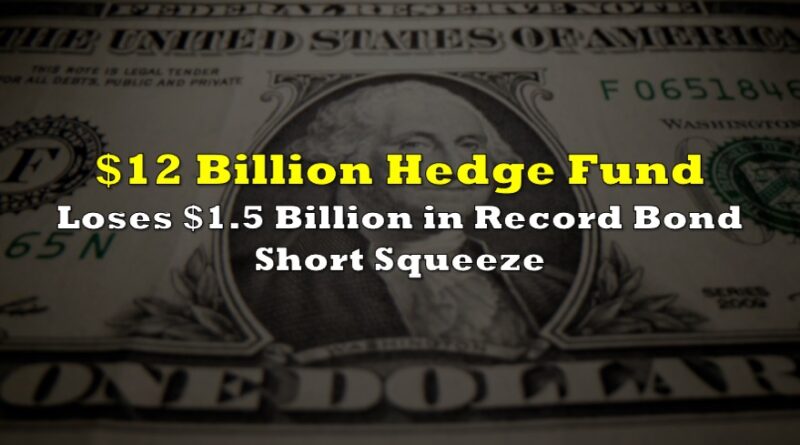$12 Billion Hedge Fund Loses $1.5 Billion in Record Bond Short Squeeze
It’s all fun and games during a rally in global bonds, until someone loses billions of dollars in a short squeeze.
Following what were trillions of dollars injected into the US money supply all in the name of bolstering the economic recovery in the face of Covid-19, major hedge funds were placing bets on a potential tapering. It didn’t take long for hedge funds’ shorts to show promising results, as come June, bond yields started spiking, as the market was beginning to take into account the potential of higher interest rates. However, the rally began to rapidly diminish, suggesting a major short squeeze may be en route.
Indeed, that is exactly what happened, because as we now know, the largest pension fund in the world— the Japan Government Pension Investment Fund (GPIF)— slashed its holdings of US Treasuries from 47% to 35% at the end of March, leaving one burning question remaining: who is the unfortunate hedge fund left holding the bag of losses as bond prices surged, and yields plummeted even lower?

Well, as Bloomberg reports, citing individuals familiar with the matter, Alphadyne Asset Management, a New York-based investment firm boasting an impressive $12 billion macro trading strategy, appears to have lost approximately $1.5 billion following a fierce short squeeze that has since forced bond yields below 1.17% at the time of writing. The firm’s flagship hedge fund, Alphadyne Asset Management, also took down a 10% loss, as its funds plummeted all throughout July.
In fact, Alphadyne’s hedge fund also suffered extensive loses in June, falling by more than 4.3% — its worst month since its inception in 2006, as the anticipated spike in interest rates and a steeper US yield curve failed to materialize. But, it turns out that the momentary jump in yields at the end of March was not the result of the market’s anticipation of higher borrowing rates as Alphadyne was led to believe, but rather the GPIF’s record liquidation of US Treasuries.
Come July, it turned out that bond yields failed to pare back, forcing the firm to eventually succumb to the losses. According to the people familiar with the matter, Alphadyne’s CIO and former Goldman Sachs head of interest rates Philippe Khuong-Hu was soon forced to cut back wagers, reduce directional short bets in both the US and Europe, as well as close down failed Treasury curve trades. In the end, the fund ended up capitulating by another 2.5% in July.
Information for this briefing was found via Bloomberg. The author has no securities or affiliations related to this organization. Not a recommendation to buy or sell. Always do additional research and consult a professional before purchasing a security. The author holds no licenses.

